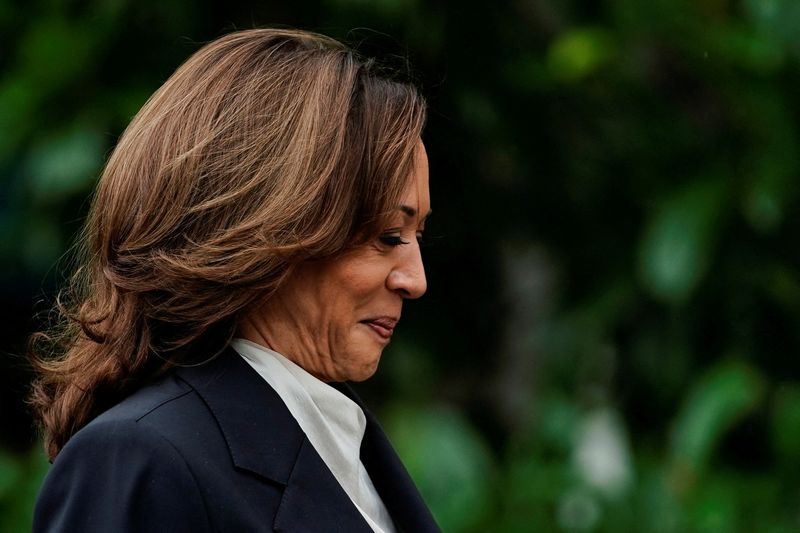Early election polling data suggests that Vice President Harris is trailing former President Trump by about 1 percentage point nationally and by 3 points in Pennsylvania, the key swing state expected to provide the decisive electoral vote, Goldman Sachs said in a Monday note.
According to an average of prediction markets, the odds of Trump winning in November are just under 60%.
President Biden’s decision to drop out of the race helped the Democrats gain approximately 2 points nationally, 1.5 points in the tipping-point state, and 1 point in swing state averages. In Democratic-leaning states that were becoming competitive, early polls show Democrats regaining or expanding their leads.
"Since Biden stepped aside, the odds of a Republican White House victory (-6pp) and sweep (-13pp) have declined, but a Republican sweep is still perceived as the most likely outcome,” Goldman economists noted.
State-level polling continues to show Trump leading in enough states to secure the majority of electoral votes. Trump's favorability has increased by about 1.5 points to 43% over the past two weeks, following an assassination attempt and the Republican Party convention.
Meanwhile, Harris' approval rating is low at 38.5%, having closely tracked Biden's rating in recent years, which was slightly below Trump's rating before the 2020 election.
"That said, there has been relatively little public polling since Biden’s exit, with inconsistent results, so the full effect of the Democratic candidate switch is not yet clear,” economists added.
On August 1, Democratic delegates are expected to start voting electronically to nominate Harris in a virtual meeting, with the nomination and her running mate expected to be confirmed by August 7, ahead of the DNC convention on August 19-22.
The Democratic VP nominee could be announced as soon as later this week, needing only the approval of the party chair without a delegate vote. Citing prediction markets data, Goldman said that Governor Josh Shapiro (D-PA), Senator Mark Kelly (D-AZ), and Governor Tim Walz (D-MN) are the frontrunners.
Economists said the Senate landscape favors Republicans, but Democrats are leading in most of their current seats, with prediction markets giving a 28% chance of a Democratic majority. Control of the House, meanwhile, remains highly contested, with a tied national generic ballot and prediction markets suggesting 55% odds of a Democratic majority, potentially decided by a few seats.
